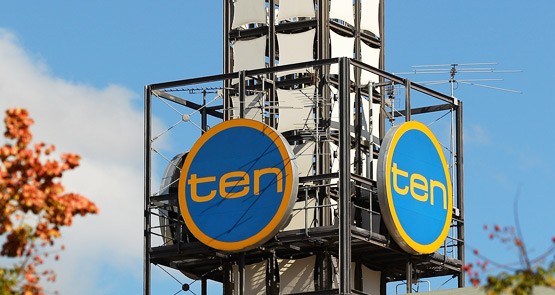
Leaving aside all the formal presentations and public debate, the real purpose of a public company AGM is to conduct corporate elections related to directors, remuneration and share issuance.
Ten Network Holdings has been an unmitigated disaster for investors big and small over the past five years, and yesterday brought some interesting voting results across eight different resolutions.
Surprisingly, despite at least six journalists attending the AGM, there was no mention anywhere of these voting results in today’s coverage. So here’s what you need to know.
Former chairman Brian Long, who controversially ceded management control and the chairmanship to Lachlan Murdoch and his billionaire friends without a full takeover bid, was given another three-year term as an independent director with more than 99% in favour.
Lachlan’s nominee on the board, Siobhan McKenna, was less popular, with 275.5 million votes against, or some 10.7%.
There was no coherent answer from the newly installed independent chairman David Gordon yesterday as to why the Murdoch interests have been allowed to have 33% of the board seats — two out of six now that Foxtel CEO Richard Freudenstein is on the board as of today — when they only control 22% of the voting stock through Foxtel and Lachlan Murdoch.
The protest votes got bigger on remuneration matters, with 17% against the remuneration report despite all of the billionaires and Foxtel being allowed to vote in favour.
There was also a 16% protest vote against two other pay-related resolutions and 12.3% against a pre-approval of future termination benefits.
It was the termination payout to former CEO Hamish McLennan — who remains the Murdoch-backed chairman of REA Group — that most upset shareholders. McLennan voluntarily stepped down in July this year, so why did he get a year of monthly payments amounting to $1.98 million as “gardening leave”, plus a $250,000 payment for his short-term incentive and an estimated $452,000 on his long-term incentive, assuming certain hurdles are met?
Any termination payment exceeding 12-month base salary is supposed to go to shareholders for approval, and Gordon was unconvincing in defending the lack of a vote yesterday.
When McLennan was appointed in February 2013, Ten’s ASX announcement explicitly stated that “he will forfeit any entitlement to an incentive payment” if he resigned.
He wasn’t terminated, but instead “agreed to step down”, and the payments were made to stop him going to a competitor, even though he remained on the Murdoch payroll at REA.
This whole situation left a majority of the independent shareholders very unhappy, which is why there were material protest votes against four pay resolutions yesterday, even though none of them specifically related to McLellan’s payout.
Leaving aside the voting results, the strangest element of yesterday’s AGM came right at the end when 86-year-old billionaire Bruce Gordon was invited to address the meeting but didn’t seem at all unhappy about losing almost $300 million in Ten.
The webcast archive is worth watching because Ten’s largest shareholder for the past few years heaped praise on the very board and management who are perplexed after he recently snapped up a 15% stake in rival Nine Entertainment Company.
Bruce Gordon’s seat on the Ten board has been delayed, which explains why the Foxtel agreement has been temporarily amended to leave three independents and three major shareholder nominees for Foxtel, Gina Rinehart and Lachlan Murdoch.
Asked why James Packer didn’t want to be represented, chairman David Gordon said he didn’t know. Packer used to be represented by Lachlan Murdoch’s key private executive, Siobhan McKenna, as Darren Davidson reported in The Australian back in 2012, but McKenna refused to shed any light yesterday on the state of the Packer-Murdoch relationship as it related to Ten.
Amusingly, despite Fairfax gossip columnist Colin Kruger having some fun today over my current disagreements with the Australian Shareholders’ Association board, the AAP coverage of the Ten AGM had me representing the ASA getting stuck into Murdoch governance issues.
However, this quote from the AGM — “When it comes to corporate governance, there doesn’t seem to be an envelope the Murdochs won’t push” — wasn’t related to Lachlan Murdoch’s board nominee Siobhan McKenna having a conflict of interest, as AAP suggested.
It was because Lachlan voted his personal 275 million shares (7.68%) in favour of issuing more discounted shares to Foxtel, effectively declaring that he wasn’t formally an associate of Australia’s pay-TV monopoly. Foxtel, of course, wasn’t able to vote its existing 456.5 million shares as it collected another 56.77 million shares at the discounted price of 15c yesterday to become the biggest shareholder with 15%, the maximum allowed under the law.
In my opinion, as was outlined at the AGM, the Murdoch family have management control of Foxtel and with Lachlan Murdoch as co-executive chairman of News Corp, he shouldn’t be voting his private Ten shares in favour of a selective discounted placement to Foxtel.
In the end, Lachlan’s vote didn’t matter as the Foxtel placement sailed through with 95% in favour, if anyone can be bothered looking at these most interesting AGM voting results.








Crikey is committed to hosting lively discussions. Help us keep the conversation useful, interesting and welcoming. We aim to publish comments quickly in the interest of promoting robust conversation, but we’re a small team and we deploy filters to protect against legal risk. Occasionally your comment may be held up while we review, but we’re working as fast as we can to keep the conversation rolling.
The Crikey comment section is members-only content. Please subscribe to leave a comment.
The Crikey comment section is members-only content. Please login to leave a comment.